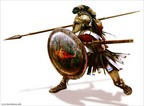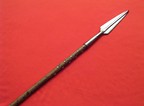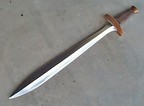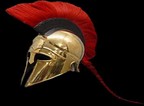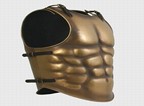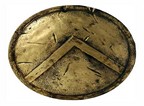Sparta reinforced its war against Athens in 414 BC. At this time, Sparta had a very powerful army and navy. Athens had suffered serious losses amongst its sailors and finance to support the war was dwindling. Under the orders of King Agis, the Spartans occupied Decelea, effectively blocking the Athenians from accessing their silver mines. Under constant and relentless attacks from the Spartans, the Athenian empire started to crumble. The Persian Empire entered the war in support of Sparta. The military commander, Alcibiades, who had fled to Sparta was called back by the Athenian navy in order to help them.
Egypt and Sparta controlled the food sources from both Sicily and Egypt. The only support Athens had at this time, came from Crimea. Under the leadership of Thrasybulus, the Athenians defeated Sparta at Cynossema. Athens also celebrated another naval victory, defeating Persia at Cyzicus by the Sea of Marmara.
Lysander arose as a new leader in Sparta, and together with the Persian leader Cyrus, began to rebuild a new and stronger armada. The Athenian leader, Alcibiades divided his forces, leaving one half one at Notium. This was a fatal decision, as his forces were attacked and defeated by Lysander. By the time Alcibiades returned to Notium, it was far too late to rescue the situation, and he was recalled to Athens. Rather than obey and stand trial, he fled to the Hellespont.
Two Greek combatants separated by a herald
After Lysander stepped down, Callicratis arose as the next leader. He attacked the harbour of Mitylene which was an Athenian stronghold. Athens defeated Sparta by using their new strong fleet at the battle of Arginusae. After Callicratis lost his life in a drowning accident, Sparta attempted to make peace with Athens, but the offer was rejected.
The Athenian navy sailed to Aegospotami in Hellespont. The leader Lysander was recalled and set up his base in the harbour of Abydos, opposite Aegospotami. Lysander then had his greatest victory, crushing the entire Athenian fleet and bringing the war to an end in one battle. He effectively wiped out the Athenians naval power at sea, and closed down its food supplies on land, forcing Athens to surrender on Spartan terms.
Repercussions
After the war ended, Athens was subjected to the rule of the ‘’Thirty Tyrants’’ for a period of about a year. Democracy was restored in 403 BC. The impact of the Spartan victory in the Peloponnesian War was diminished by their defeat in the Battle of Leuctra in 371 BC. Sparta’s empire and power was finally destroyed years later when Greece was totally conquered by Philip II of Macedon.
